"I feel like I’m dying. There’s a lot of blood and I’m in a lot of pain"
Young women share how COVID-19 has worryingly changed their periods
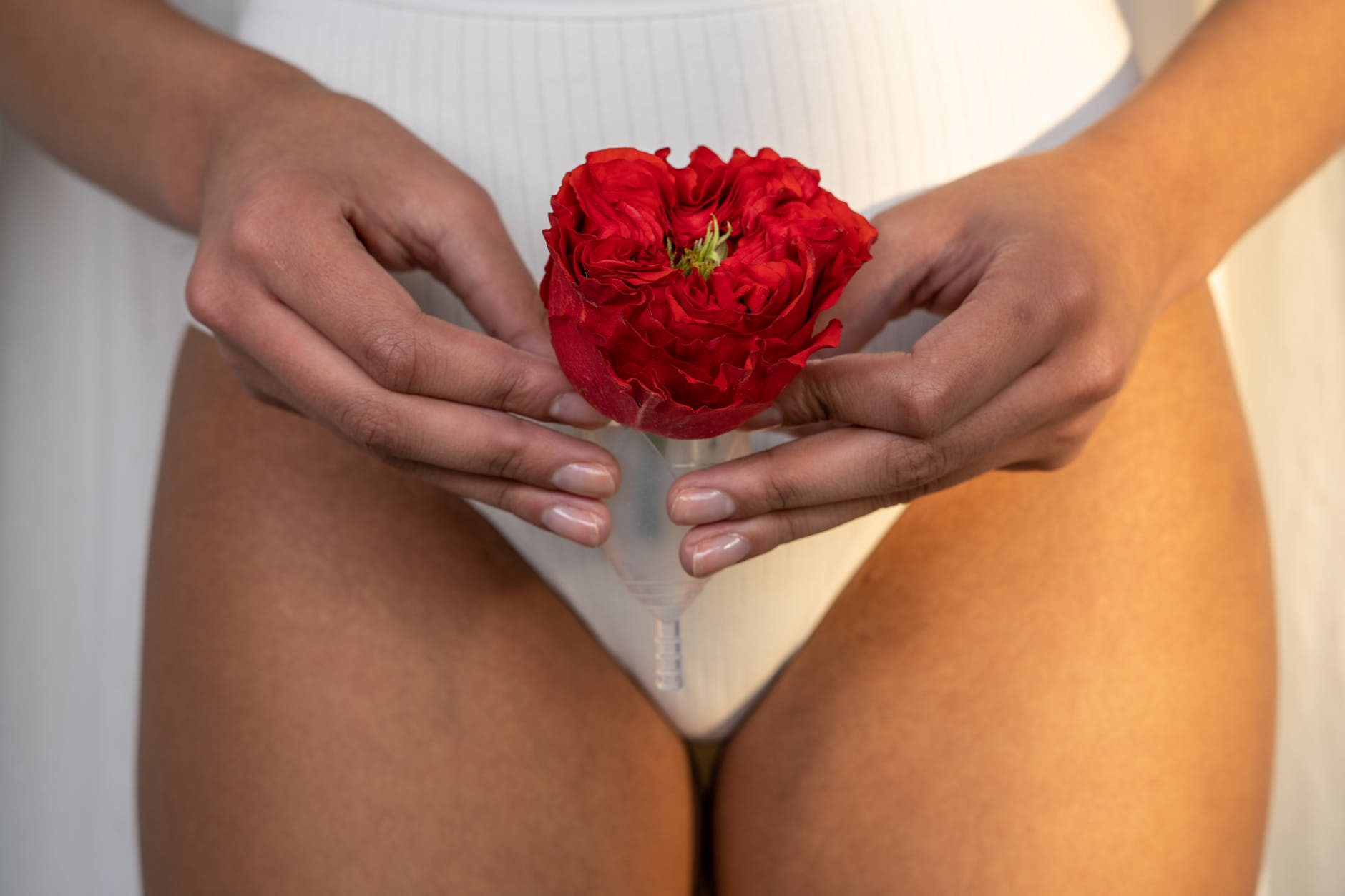
"I feel like I’m dying. There’s a lot of blood and I’m in a lot of pain," Maya Rogers told paramedics who had been called out to see her as she lay screaming on the bathroom floor.
She would find out later that day that she had COVID-19. Her main symptom, an abnormal change to her period, was not one she had ever connected with the virus.
Despite not making headlines, this side effect of COVID-19 is affecting many women.
Reported changes to women’s periods include heavy bleeding, acute pain, disruptions to the menstrual cycle and the disappearance of periods altogether.
Those on birth control have experienced breakthrough bleeds while others suffering from long COVID have also reported that their symptoms, such as breathlessness, worsen when they are on their period.
One of the longer lasting effects of Covid was the fact that my period cycle was much longer than usual. I was late for about 13 days before I finally bled. And it's one of the most painful periods I've ever had, and usually my periods arent painful at all. 😭
— Gap Tooth Gal (@GStadhauer) January 11, 2021
Dr Louise Newson, a leading Menopause specialist, has noted this change in the menstrual cycles of women who have had COVID-19.
She said: "Many women are describing that their periods have stopped or changed in nature or frequency since having an infection with COVID.
"They are noticing their symptoms are worse just before their periods, when hormone levels are at their lowest."
Even where the virus doesn’t cause pain, the unexplained disruption to the menstrual cycle still causes worry.
As Kayley Herbert, 21, explained: "I was concerned because when it's just completely random bleeding you do think what's the cause of it."
For some, questions surrounding fertility have arisen. Laura, 36, from Belfast said: "I'm concerned about what affect it will have on future plans to try for another baby."
after having covid, my period has been the WORST pain i have ever experienced in my life, and it was pretty moderate before. it has completely messed me up
— 🐞🦋 (@vegnuut) January 16, 2021
A quick search of the correlation between COVID and periods brings up very few hits, with the NHS website offering no guidance on the correlation.
Left without answers from their doctors, many of these women have resorted to posting on COVID survivor or Long COVID Facebook groups in the hope of finding answers.
However, there is medical evidence behind the symptoms that women are experiencing. Dr Newson, founder of The Menopause Charity and The Balance App, explained that not only can any infection lead to a reduction in the way ovaries work, but COVID-19 appears to be directly affecting the way ovaries work and function.
She believes that these symptoms are likely to be related to the effect COVID-19 has on the ACE 2 receptors in the ovaries.
Dr Newson said: "The virus responsible for COVID-19 enters cells via a specific receptor, ACE 2, which is present on the ovary.
"The hormones oestrogen and testosterone are both produced by the ovary and their levels decline during the perimenopause and menopause.
"Having the virus may lead to these hormone levels lowering faster than they would have done otherwise."
Maya Rogers and Kayley Herbert talk about pain dismissal and the lack of information on periods and COVID-19
Worried about the unexplained changes to their body, many have also reported disbelief from medics.
For Maya this was what stuck with her most. "I found the dismissal quite difficult," she admitted.
"You're in a situation where you don't know what's happening. I was reaching out for help, and they just completely dismissed it."
Kayley agreed, believing that her age was a factor as well as her gender. She said: "I think with menopause there's more studies into it but with younger women it's like “take this and deal with the consequences”."
Lauren Strutt, 34
Lauren, 34, from Essex, believes she had COVID-19 in March 2020, before mass testing was introduced, when she lost her sense of taste and smell.
She has since been suffering with symptoms of long COVID which include breathlessness, stomach-related problems and issues with her period. In late July she experienced a particularly bad episode of her symptoms.
I just remember thinking I'm not going to wake up in the morning.
"I couldn't tell you what this attack was, but something just came over me," she recalled.
"I just remember thinking I'm not going to wake up in the morning. It was like my insides were on fire. Absolutely everything didn't feel right."
Lauren noticed changes to the length of her cycle as well as experiencing a constant tugging at her womb and pain during ovulation.
"At the same time this all came crashing down, I noticed there's less time in between periods. It's really strange. My cycle has completely changed."
After keeping a diary for several months, she also realised that her other symptoms worsened when she was on her period.
"I think all my symptoms, and I mean absolutely every last one of them, are all related to when I'm due on my period. The breathlessness, the anxiety, absolutely every symptom I've got coincides with my period."
Absolutely every symptom I've got coincides with my period.
When she went to her GP, it was suggested that she might be going through the menopause. However, blood tests showed no signs of menopause or issues with her thyroid.
A scan on her uterus showed that she had Polycystic Ovary Syndrome. Lauren says that this is something she showed no symptoms of before she had COVID.
Although her doctor has said that PCOS alone would not cause her symptoms, to Lauren’s frustration, they have been unable to give her anymore answers.
"It’s made me extremely worried. I thought I was dying. There's no information at all. My doctors have been useless. They make you feel like it's in your head."
I thought I was the only one in the world going through this and it’s helped me a lot knowing that there's other people out there.
Lauren has found some solace in Facebook groups, where she is able to discuss her symptoms with those who are going through the same thing.
"When you've not realised it's not in your head and there is actually something wrong with you and a lot of people are suffering with it, it makes you feel better.
"I thought I was the only one in the world going through this and it’s helped me a lot knowing that there's other people out there."
Lauren is currently being referred to a long COVID clinic where she hopes she’ll be given some answers.
"Fingers crossed they know a bit more. That’s what I’m clinging onto at the minute."
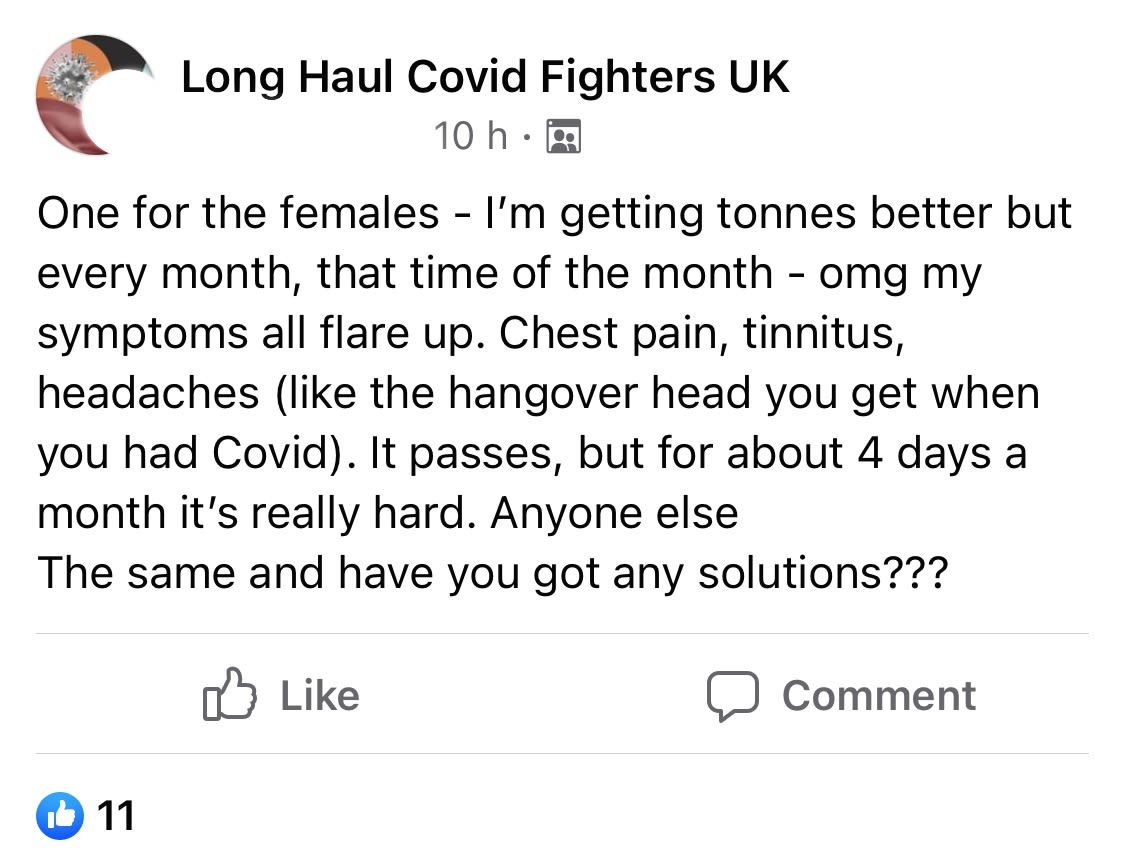
Women like Lauren have taken to Facebook groups to try to find answers.
Women like Lauren have taken to Facebook groups to try to find answers.
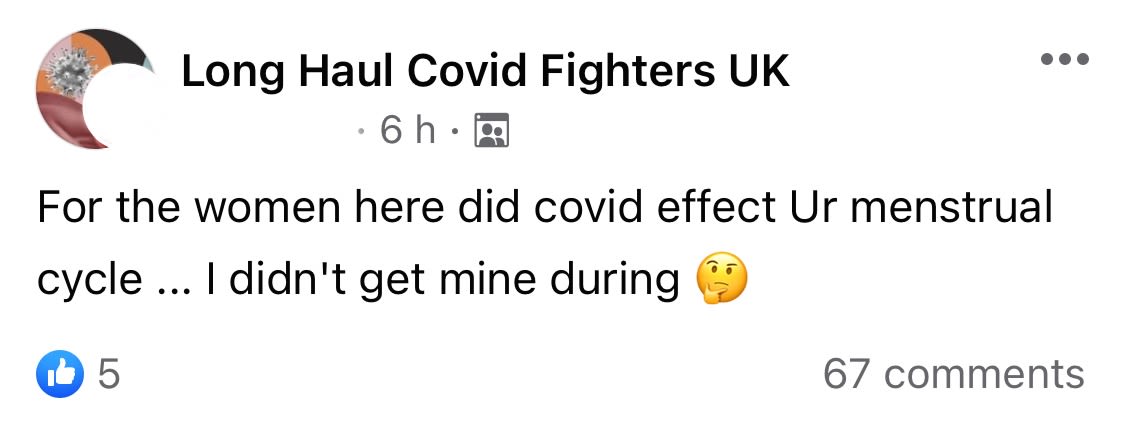
Women like Lauren have taken to Facebook groups to try to find answers.
Women like Lauren have taken to Facebook groups to try to find answers.
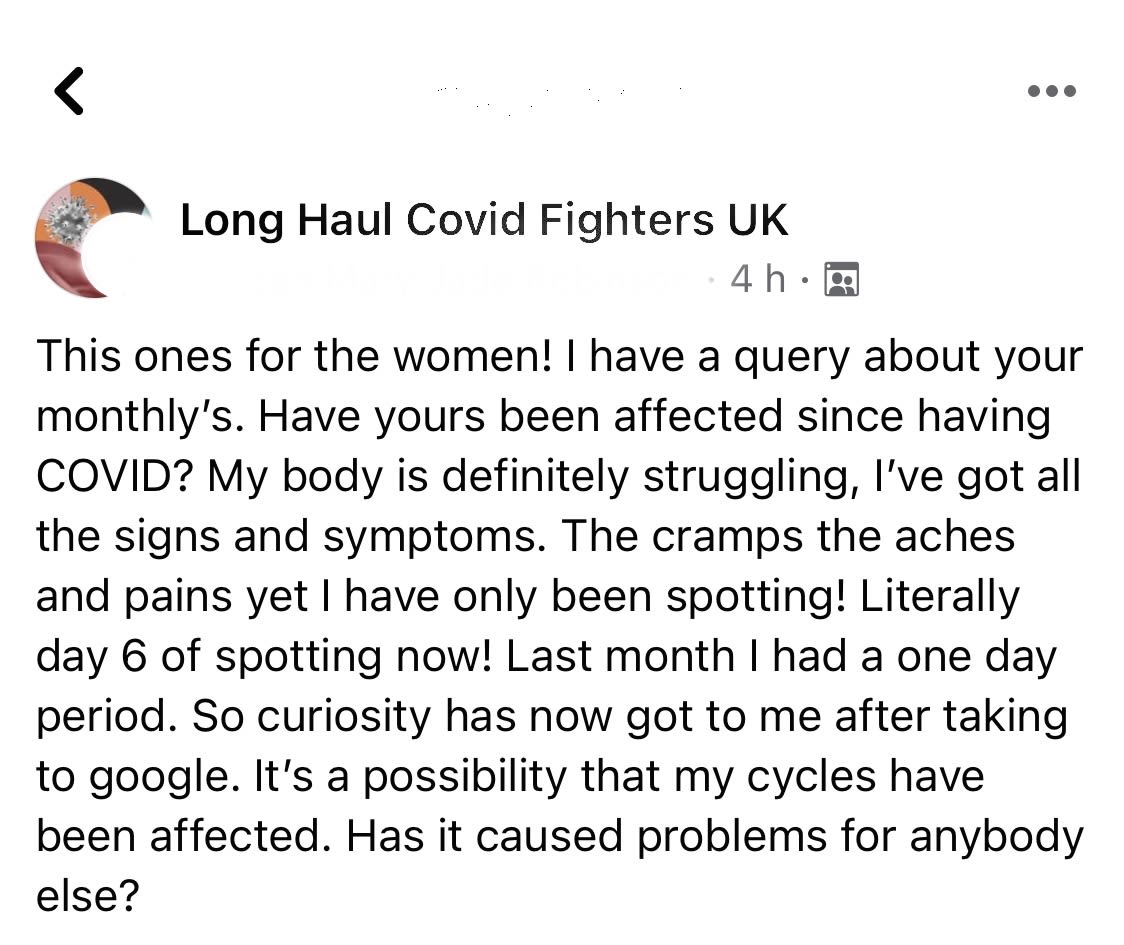
Women like Lauren have taken to Facebook groups to try to find answers.
Women like Lauren have taken to Facebook groups to try to find answers.

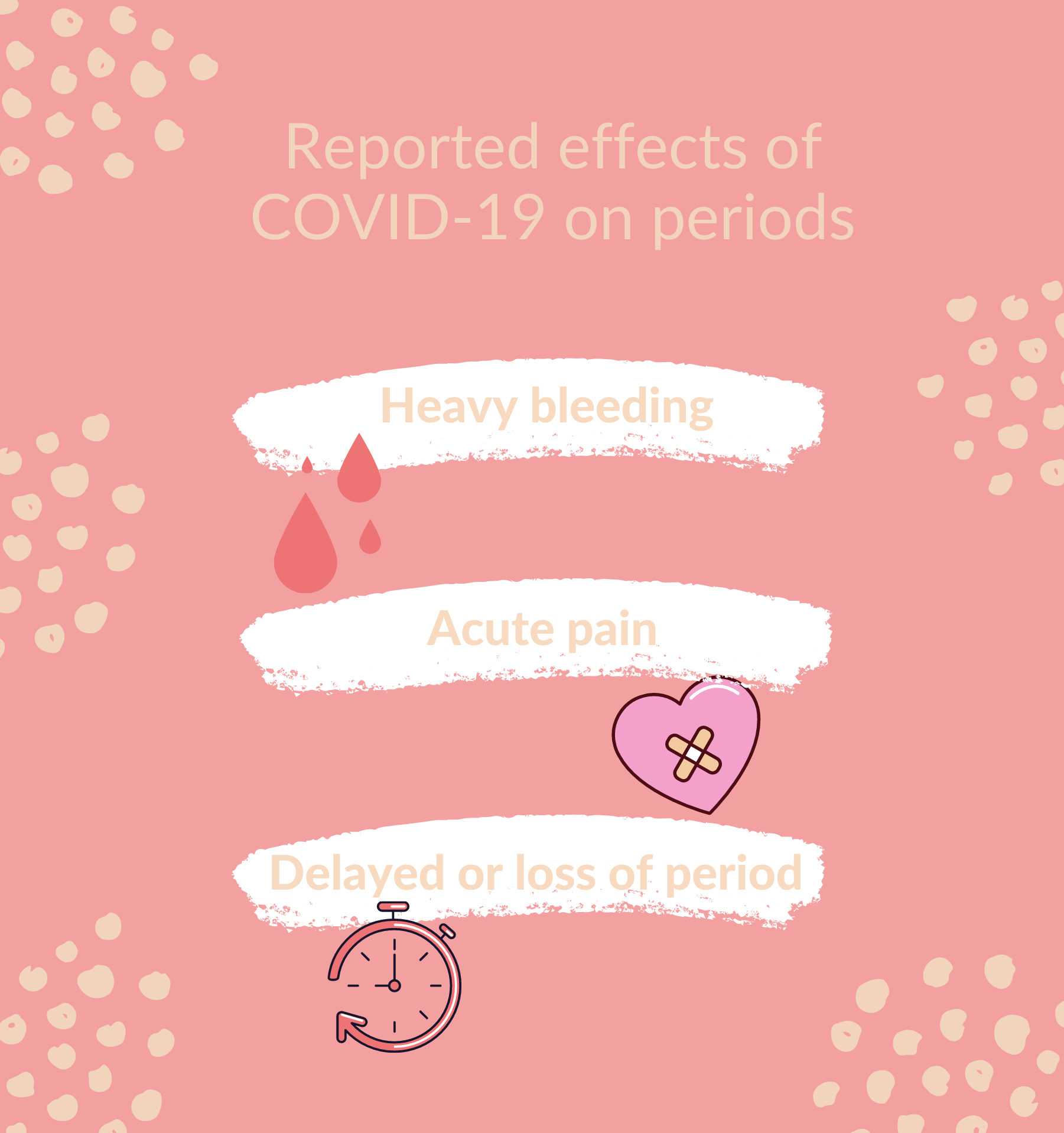
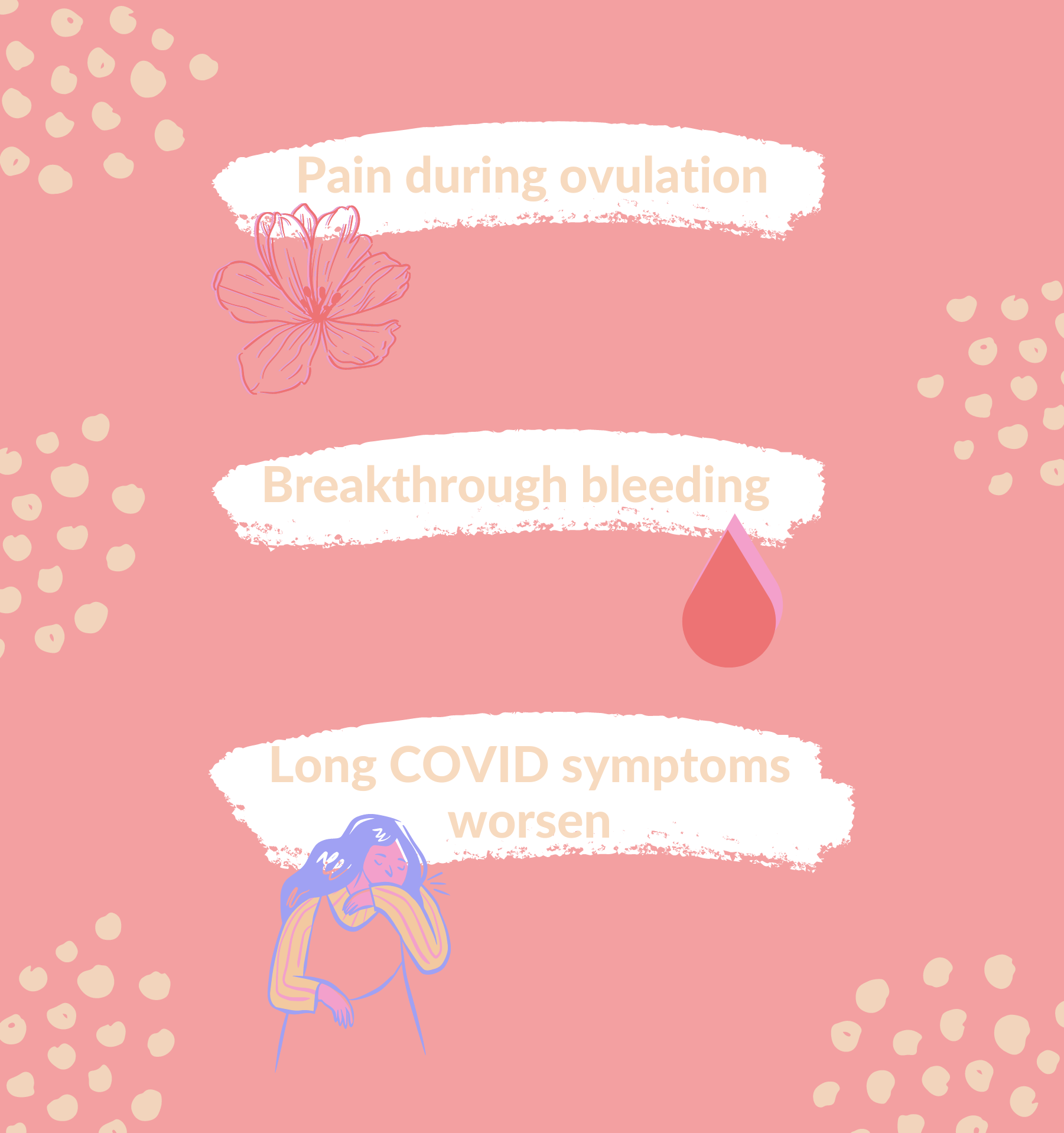
Maya Rogers, 22
Maya Rogers, a law student at Sheffield University, tested positive for COVID-19 in October 2020. Feeling as though she had a hangover, she simply thought she was experiencing PMS when she took a precautionary test.
In the early hours of the next morning she woke with a fever and had lost all feeling in her toes and fingers.
"When I stood up I realised I'd lost a lot of blood. It sent me into some sort of shock," she explained.
"I could barely walk. I was very, very lightheaded, like I was about to faint at any second."
A friend described it as "it sounded like I had been stabbed".
Suffering also from vomiting and diarrhoea, she immediately knew that what she was experiencing wasn’t simply part of her monthly cycle.
"I was on the bathroom floor screaming. A friend described it as "it sounded like I had been stabbed". It was really, really painful and it felt wrong, like this isn't normal."
Her flatmates called 111 who sent out paramedics, but Maya felt that they didn’t take her pain seriously.
"In all honesty they were quite useless. We felt like they were saying that I was wasting their time. It was almost like because my pain came from a period that it didn't count. They just completely dismissed it basically."
It was almost like because my pain came from a period that it didn't count.
Maya saw a GP later that day who also could offer no real explanation for her experience and prescribed her Naproxen, strong NSAID pain medication.
It was only when Maya received her positive COVID-19 test result a few hours later that she thought there might be a connection between the two.
"Not having any explanation at all was quite worrying. This was a complete anomaly for me, I do experience period pain quite badly, but this was a completely different level of pain.
"So when I saw that positive test that's what my brain jumped to - actually there must be a connection here, it can't be unrelated."
What's worrying is the lack of information out there.
However, when she tried to research links between COVID-19 and changes to her period she couldn’t find anything.
"What's worrying is the lack of information out there," Maya said.
"I looked at the NHS website and it wasn't there. Literally adding one line would make a lot of difference. I was thinking "Oh, is this just random. Have I just made this up? Was I wasting the paramedics’ time like they made it out to be?"
"I see it as very important to make people aware. If it helps someone, so they’re not like me at 5am, panicking because I had no idea what was happening, then that’s great."
Featured image credit: Cottonbro
